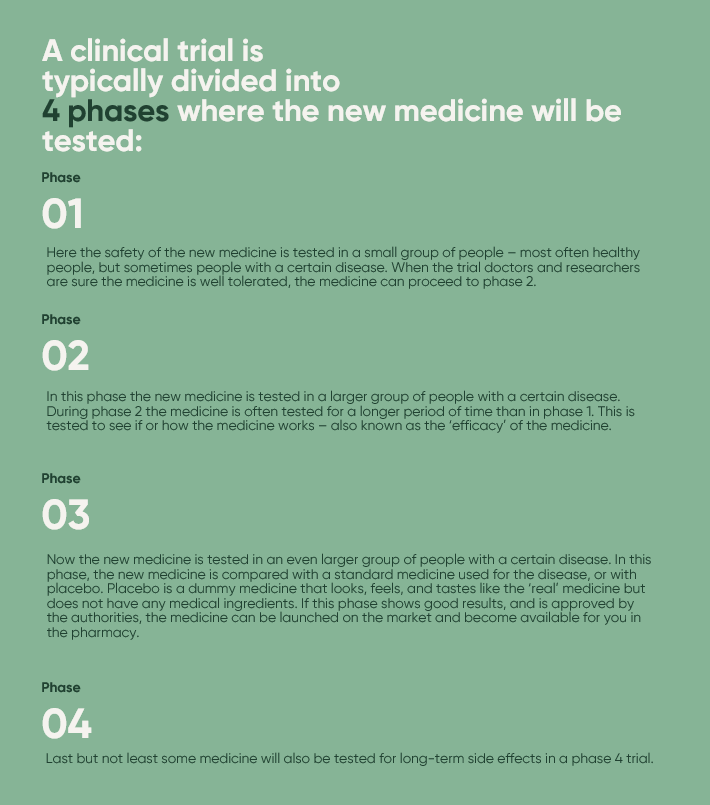- Home
- Why participate?
- What is a clinical trial?
What is a clinical trial?
A clinical trial is a research study where people are invited to try a new medicine. Clinical trials test if a new medicine works and if it is safe.
Before a new medicine can be tested in a clinical trial, it must first be tested in the laboratory. This is done to make sure that it is safe to test the medicine in people. New medicines are typically tested in 4 phases:

All clinical trials have a detailed plan for how the trial should be done – a kind of ‘recipe’ for the trial doctors. This plan is called the trial protocol.
The trial protocol describes:
- which people may take part in the trial
- how people that take part will be treated and looked after
- how long the trial will take
- how the results will be measured.
Before a trial can start, an independent ethics committee and the local government’s health authorities must approve the trial protocol.
Clinical trials will only take place, if there are more benefits than risks for the people taking part. There must also be a scientific and medical reason for the trial.

